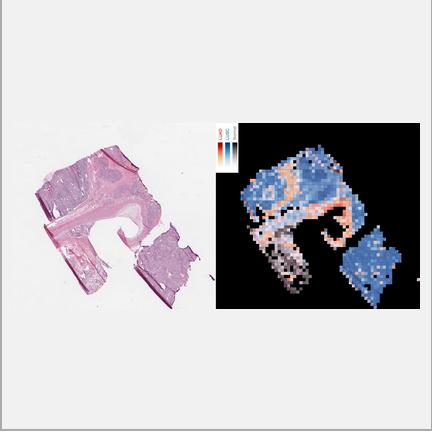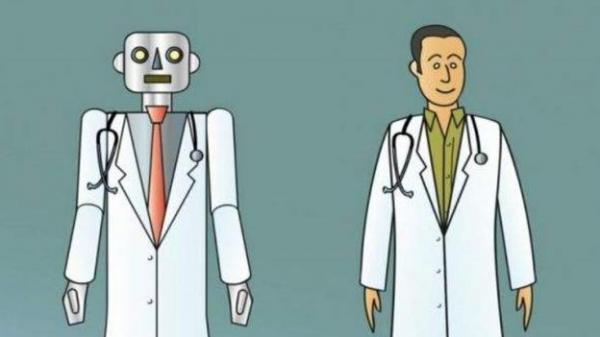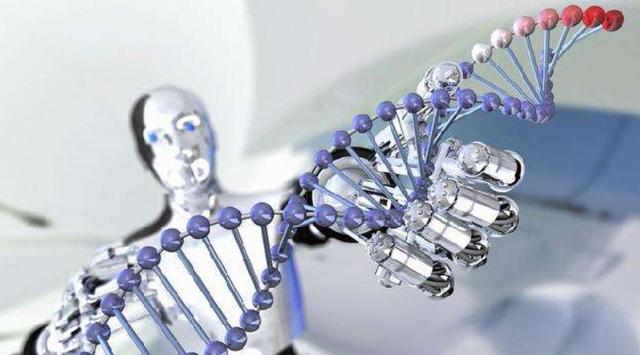EurekAlert recently reported a new study on the application of artificial intelligence technology in the medical field, which designed a new computer program that can analyze images of patients' lung tumors, determine the type of cancer, and even identify genes that cause abnormal cell growth. .
The study, published by researchers at New York University School of Medicine in the journal Nature Medicine, found that an artificial intelligence or machine learning program with 97% accuracy distinguishes between adenocarcinoma and squamous cell carcinoma – both lung cancers. Types of experienced pathologists are sometimes difficult to confirm.

This artificial intelligence tool also determines the presence of abnormal forms of the six genes associated with lung cancer in cells, including EGFR, KRAS, and TP53, with an accuracy ranging from 73% to 86%. This genetic change or genetic mutation usually leads to abnormal growth of cancer cells, but it also changes the shape of the cells and interaction with the surrounding environment, providing visual clues for automated analysis.
The researchers say that as targeted therapies increase, it becomes critical to determine which genes have changed in each tumor, because targeted therapies only work for cancer cells with specific mutations. For example, it is known that about 20% of adenocarcinoma patients have mutations in the gene epidermal growth factor receptor, so drug treatment can now be started.
The study authors say that the genetic tests currently used to confirm the presence of mutations may take several weeks to return results.
“Deferred cancer treatment has never been a good thing,†said senior researcher Dr. Aristotelis Tsirigos, associate professor of pathology at the University of New York at the Langeny Cancer Center. “Our research provides strong evidence that artificial intelligence methods can immediately determine cancer. Type and mutation characteristics, enabling patients to start using targeted therapy earlier."

Machine learning
In the current study, the research team designed statistical techniques to enable their programs to “learn†how to get better in their tasks without being told how to do it. These programs build rules and mathematical models that enable them to make decisions based on data examples, and as training data grows, programs become "smarter."
Inspired by the brain's neural cell network, new artificial intelligence methods can use more and more complex circuits to process information hierarchically, each step of entering information into the next step, and assigning more or more to each piece of information in the process. Less importance.
The current team trained a deep convolutional neural network, Google's Inception v3, to analyze slide images obtained from the cancer genome map. This allows researchers to measure how their programs are trained to accurately and automatically classify normal and diseased tissues.

Interestingly, the study found that about half of the tumor images misclassified by artificial intelligence programs were misclassified by pathologists, suggesting two types of lung cancer, adenocarcinoma and squamous cell carcinoma. It is really difficult to distinguish. On the other hand, of the 54 images misclassified by at least one pathologist under study, 45 were assigned correctly by machine learning programs, indicating that artificial intelligence is really useful.
“We are pleased that our research has improved the accuracy of pathology and demonstrated that artificial intelligence can detect previously unknown patterns in the visible features of cancer cells and surrounding tissues,†said co-author Dr. Narges Razavian, who is radiology. And Assistant Professor of Population Health, “The synergy between data and computing power is creating unprecedented opportunities to improve medical practice and science.â€
Currently, they are seeking government approval for the clinical use of the technology, while using the technology for the diagnosis of several cancer types. Next, the team plans to continue using data to train its artificial intelligence program until it increases the accuracy of the possibility of genetic mutations in specific cancers to more than 90%.
Vegetarians Size 00 Empty Capsule
Vegetarians Size 00 Empty Capsule,Gelatin Empty Pills Capsules Vegan,Colorful Vegan Empty Pills Capsules,Size 00 Empty Pills Capsules Vegan
Ningbo Jiangnan Capsule Co., Ltd. , https://www.ningbocapsule.com